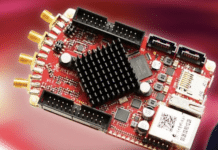- SystemD has been adopted as the default and primary init system in most major Linux distros since 2015
- The debate over SystemD support has seen many distros and their community forks emerge
Debian Project Leader Sam Hartman has further adopted a proposal on the Debian wiki to have a vote over the need for Debian developers to re-evaluate their interests in “init-system diversity”.
A number of Debian developers have been working on “elogind” an alternate init system to help ensure that Debian isn’t explicitly bound to SystemD.
SystemD which is now the most widely adopted init system on Linux distros overnight dethroned the traditional SysV init which had dominated the scene for decades.
Debian project which is one of the oldest Linux distros and Open Source Projects has distinguished itself with its democratic constitution which focuses on the discussion of key technical and policy matters that affect the adoption and modification of upstream changes to the constituent software included in Debian GNU/Linux and the software distributed through their repositories.
The first stage of the voting process is deliberating on the official Debian project mailing lists about the various aspects of devoting the time and resources of Debian developers in supporting other non default init systems which crop up quite a few reported bugs.
The current Debian Project lead has spent considerable time in mitigating the differences between the two opposing sides within the Debian dev. community i.e. the ones who favour SystemD to be the monolithic all-encompassing Linux Standards Base Init-system and the ones who favour supporting various alternate init-systems alongside SystemD.





































































